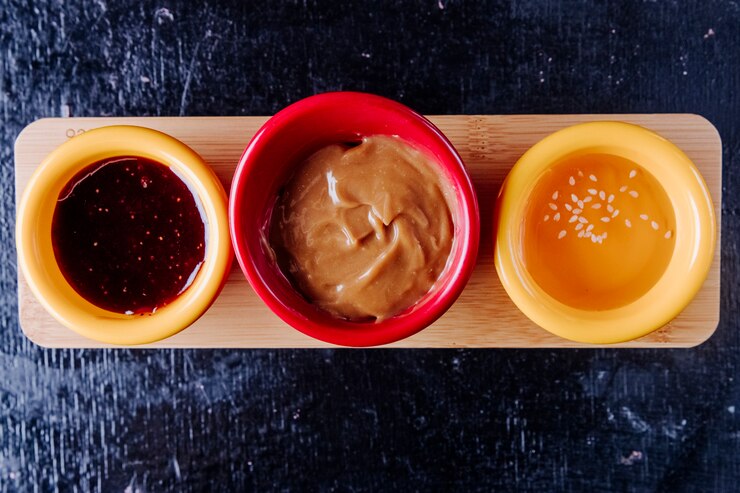| Person | Details |
|---|---|
| Name | Muto Shinoda |
| Born | California, Japan |
| Gender | Male |
| Age | Not specified |
| Material Status | Married |
| Spouse | Donna Shinoda |
| Known For | Father of Mike Shinoda, Japanese internment camp survivor |
| Description | Muto Shinoda is the father of musician Mike Shinoda. He is of Japanese-American descent and experienced the hardships of Japanese internment camps during World War II. His experiences and heritage have significantly influenced his son, Mike Shinoda, particularly in cultural identity and music. |
Muto Shinoda, the father of the renowned musician Mike Shinoda, is a significant figure not only because of his familial connection but also due to his unique background and experiences. Born in California, he was part of a Japanese-American family that faced profound challenges, including life in internment camps during World War II. These experiences deeply influenced his identity and subsequently shaped Mike Shinoda’s life and music. Understanding Muto Shinoda’s story provides valuable insight into the cultural and historical contexts that influenced the Shinoda family.
The Japanese-American Heritage of Muto Shinoda
Muto Shinoda’s heritage as a Japanese-American forms a crucial part of his identity. With roots in Japan, his family settled in California, a state that became home to many Japanese immigrants. However, their lives were disrupted during World War II when Japanese-Americans were placed in internment camps due to growing wartime paranoia. For Muto, these events were not just historical occurrences but personal experiences that left an indelible mark on family dynamics and cultural perspectives.
Family Background and Muto Shinoda’s Upbringing
Raised in a Japanese-American household, Muto Shinoda grew up understanding the value of resilience and perseverance. His family was among those who suffered from the blatant racial discrimination prevalent at the time. After their release from the internment camps in Arizona, the Shinodas returned home only to find it severely damaged and altered. Despite these hardships, the family worked hard to rebuild their lives, instilling strong values and determination in Muto. His upbringing was therefore heavily influenced by a deep sense of cultural pride and an awareness of the injustices faced by their community.
The Impact of Internment Camps During World War II
When Muto Shinoda was just three years old, his life took a drastic turn. His family was forced from their home and into internment camps, a move triggered by the attack on Pearl Harbor. These camps, initially housed in horse stalls at Santa Anita Racetrack before relocating, were marked by harsh conditions and a lack of freedom. The fences, guard towers, and constant surveillance were constant reminders of the suspicion and fear that people like Muto’s family had to endure.
This traumatic experience had far-reaching effects, shaping the attitudes and worldviews of many who lived through it. For Muto, these memories served as both painful reminders and sources of resilience that he later passed on to his children.
The legacy of these experiences can be seen in Muto’s son, Mike Shinoda, who explores these themes in his music. In songs like “Kenji,” Mike reflects on the hardships that his father’s generation faced, revealing a deep connection between personal family history and broader historical events. Muto’s story, therefore, plays a crucial role in understanding the formation of identity and cultural consciousness in the Shinoda family over the generations.
Challenges Faced by Japanese-Americans Post-Internment
The end of World War II did not mark the end of struggles for Japanese-Americans. After their release from internment camps, families like Muto Shinoda’s faced significant challenges. They returned to neighborhoods where their homes were often vandalized or entirely lost. Many communities were unwelcoming, leading to a long-lasting struggle with discrimination in housing, work, and daily life.
You can imagine the difficulty of rebuilding a life from scratch while dealing with prejudice and loss. This experience left deep scars and a sense of resilience that characterized the Japanese-American community. Despite systemic barriers, they persevered to create stable environments for future generations, pushing slowly back against a hard reality. Their relentless effort to rebuild and integrate into society is a testament to their strength and adaptability.
The Influence of Muto Shinoda’s Experiences on Mike Shinoda
Muto Shinoda’s experiences during and after internment camps deeply affected his son, Mike Shinoda. Mike grew up hearing stories of adversity and survival, shaping his view of the world and fueling a passion for storytelling through music. One profound example is his song “Kenji,” which recounts these harrowing experiences and the emotional toll they took on families like his own.
Growing up in Agoura Hills, Mike faced challenges linked to his racial identity, echoing his father’s experiences of prejudice. Muto’s stories of resilience and perseverance became an integral part of Mike’s upbringing, driving themes in his music that explore identity, heritage, and struggle. These influences are not just historical footnotes; they are living legacies that resonate through Mike’s artistic journey, helping him connect deeply with audiences who find similar struggles in their own lives.
Muto Shinoda and the Shaping of Cultural Identity
Cultural identity is a complex tapestry woven from family history, personal experiences, and societal interactions. For Mike Shinoda, his father’s Japanese-American background was a significant thread. Muto Shinoda’s life stories and cultural heritage played a crucial role in shaping Mike’s identity, providing him with a rich background that influenced his personal and professional life.
Growing up in a predominantly white suburban environment, Mike had to navigate his multifaceted identity. He drew strength from his father’s experiences, using them to forge a strong sense of self. Muto instilled in Mike the importance of understanding his heritage and embracing it in a world that often misunderstood it. Through music and art, Mike found a voice that proudly shared and celebrated his Japanese-American roots, offering a vivid picture of this heritage to wider audiences. His cultural identity, influenced by Muto’s experiences, became both a personal anchor and a bridge to connect with fans across diverse backgrounds.
To learn more about cultural stories and influences, you can visit our insightful resources at Tekkwi, where history and personal narratives find a common ground.
Encouraging Artistic Talents in the Shinoda Household
In the Shinoda home, creativity and artistic talent were nurtured from an early age. Muto Shinoda, alongside his wife Donna, played a crucial role in fostering an environment that encouraged music and artistic expression. They recognized early on that their son, Mike, had a keen interest in the arts. As a result, they made sure to support this budding passion, which would later define Mike Shinoda’s career.
For Mike, his journey into music began with classical piano lessons, a choice influenced by his parents. This early education exposed him to the complexities and beauty of music, laying a strong foundation for his later explorations into other forms of art and sound. The Shinoda household was often filled with melodies, providing a soundtrack to Mike’s childhood that sparked his imagination and creativity.
Muto Shinoda’s appreciation for music and the arts was deeply intertwined with his values, which included the importance of perseverance and cultural heritage. By encouraging Mike to explore these interests, Muto helped instill the discipline and passion necessary for Mike to succeed in his future endeavors. This nurturing environment was not just about honing skills but also about forming a deep connection between personal identity and creative work.
Muto Shinoda’s Role in Mike Shinoda’s Career Path
Muto Shinoda’s influence on his son, Mike, extended beyond childhood support and into shaping his professional journey. As Mike transitioned from learning music to creating it, Muto provided crucial emotional and moral support. He understood the challenges of pursuing a career in the arts, especially given the family’s background and experiences. Muto’s experiences during and after WWII instilled resilience, which he passed on to his son.
Mike Shinoda often credits his father’s perseverance as a key factor in his success. Muto always encouraged Mike to push boundaries and stay true to his unique artistic vision, even when faced with challenges. This encouragement proved instrumental when Mike co-founded the iconic band Linkin Park, a venture that brought his artistic ambitions to a global platform.
Muto Shinoda’s life, marked by its own challenges and triumphs, inspired Mike to address complex themes through music. This enriched Mike’s compositions, making them not only entertaining but also thought-provoking and meaningful. Muto’s life experiences directly influenced tracks like “Kenji,” where Mike explored his family’s history with Japanese internment, showing how personal and historical narratives can powerfully converge in art.
Conclusion: The Legacy of Muto Shinoda in Modern Context
Muto Shinoda’s legacy is a testament to the enduring influence parents can have on their children’s lives and careers. His support and values have left a lasting imprint on Mike Shinoda’s work, shaping both his artistic voice and personal identity. Muto’s ability to transform adversity into strength and creativity shows the power of resilience and cultural heritage in defining one’s legacy.
The lessons imparted by Muto Shinoda are now reflected in Mike’s music, inspiring fans across the world. Through his son, Muto’s experiences and wisdom continue to reach new audiences, highlighting issues of cultural identity, perseverance, and the power of art. For readers and fans alike, Muto Shinoda’s story is a reminder of how the past can shape our future, pushing us to create meaningful change through understanding and creativity.
In understanding the life of Muto Shinoda, we gain insight into the forces that shaped one of modern music’s most influential artists, Mike Shinoda. This legacy serves as both an inspiration and a call to action, encouraging us to honor our histories while forging new paths in a complex world.






